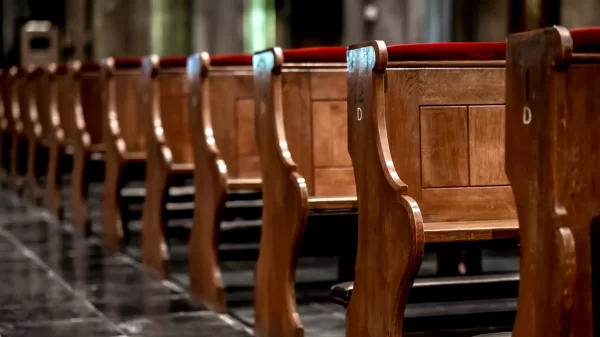By Lee Hedgepeth
Alabama Political Reporter
On Wednesday, the Alabama House of Representatives’ Education Policy Committee passed out a bill making significant changes to the Alabama Accountability Act’s SGO, tax deduction, and failing schools criteria provisions.
Most significantly, the proposal, HB558 by Representative Chad Fincher, would lift the $7,500 individual contribution cap for funds donated to Scholarship Granting Organizations created under the Alabama Accountability Act, so-called SGOs which grant money for students in failing schools to attend private ones, but which have become a cash cow for some in the scholarship granting business.
Among those in that arena is former Governor Bob Riley, who is chairman of the Alabama Opportunities Scholarship Fund, an SGO he founded in partnership with Florida investment banker John Kirtley.
Certain language in the Accountability Act – a law reminiscent of ALEC-drafted legislation – provide that administrators of such “Scholarship Granting Organizations” are entitled to five percent off the top of any money raised. John Kirtley’s investment group, which has funded many such projects, made almost seven million dollars administering a similar program in Florida, where the fee was capped at only three percent.
The Director of the Riley-Kirtley SGO testified at the hearing, and spoke his mind to committee rather candidly:
“I urge you to consider whatever it takes to ensure long term financial success of SGOs,” he said, “…whatever that means.”
Susan Kennedy of the Alabama Education Association pointed out that to have a tax burden that would allow for a deduction more than $7,500, a household would have to earn an income of more than $350,000. Supporters of the legislation did not necessarily disagree with this, with many of them saying that the bill would allow the “super wealthy” to utilize SGOs.
Besides Susan Kennedy, few speakers addressed the actual effect that the cap’s removal would have on them, with most speaking solely about the Accountability Act in general or about changes in deadlines dates also provided for by the bill, a fact that Montgomery Advertiser reporter Brian Lyman pointed out on Twitter, saying “With exception of Kennedy, speakers have spoken less about the bill and more about the pluses or minuses of the AAA.”
Mike Hubbard spokesperson Rachel Adams took exception, though, on the social media site, saying to Lyman: “Is that why you’re not tweeting what any of them are saying? I know that one spoke to specifics of moving the deadline.”
“Trying to look name spellings,” Lyman responded. “Also not much talk about how exactly lifting $7,500 cap would impact them directly.”
“There were three changes,” the Hubbard spokesperson finished, “that was only one of them.”
While the $7,500 cap removal was clearly the most important change to the bill, there are more included in the proposed legislation, as we here at APR and Brian Lyman of the Montgomery Advertiser have reported.
One of the other changes, besides deadline date revisions, was a provision that will allow corporate entities – LLCs, sub s-corporations, and some others (so-called pass-throughs) – to donate to Scholarship Granting Organizations and receive tax deductions.
“They can call really, really rich people and ask really, really rich people to give more so they don’t have to make more phone calls,” Kennedy, the AEA representative, said at the hearing.
Alabama is to set aside twenty five million dollars annually for SGO tax credit funding, and the proposed legislation does not remove that cap. The bill’s sponsor, though, says he is committed to having that limit reached every year, and if, in the future the overall cap were removed – the pass-through provision would allow corporations to fund a move for Alabama schoolchildren in “failing schools” from those public to private institutions.
Notably, Late last year, around the time he was founding an Accountability Act SGO with former Alabama Governor Bob Riley, Florida-based investment banker John F. Kirtley was attending award ceremonies for Speaker Mike Hubbard and Senate Pro Tem Del Marsh.
That story by Alabama Political Reporter can be read here:
The bill passed out of committee on a voice vote.
Members of the House Education Policy Committee include the Chair, Mary Sue McClurkin, Vice Chair Phil Williams, Ranking Minority Member Marcel Black, and Representatives Elaine Beech, Mac Buttram, Terri Collins, Ed Henry, Thomas Jackson, Joseph Mitchell, Kerry Rich, and Lesley Vance.





















































